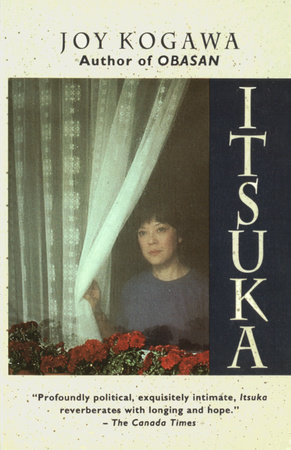Itsuka by Joy Kogawa
About the book
Author: Kogawa, Joy
Title: Itsuka
Publication: Toronto, Ont. : Viking, 1992. ISBN 0140169881.
DAISY audio format narrated by Sandra Scott. CELA library call number DA12414. 288 pages in the paper edition; 8 hrs., 45 mins. as a recorded book.
About the story
This is the sequel to Obasan, which I reviewed earlier.
I must say that, at this point, I don’t think it holds a candle to the original but then it did not benefit from Joy Kogawa’s luminous reading. The narrator for this volume clearly did not learn Japanese pronunciation, which makes it hard to understand the words. She also mispronounces common English words though, like rodeo (roDAYo), so it does become quite irksome.
This book also has a not-insignificant proportion of Religious Expounding (strictly in the service of the plot, I must state), but that is one of my biggest pet peeves, so it also put me off.
Maybe this is a book I should have read using TTS? There are some narrators that just put me off so much I would rather just have a machine read to me!
This book runs over much of the same ground as Obasan did, but with a different focus: more on the narrator’s experience as a woman, less of a child-survivor of internment camps. It is definitely more political. The same characters come up, but different ones do, too, such as a one-time love interest and a friend who figured only fleetingly in the first novel.
Kogawa’s gift lies in the description of the small things, and of her fictional self’s inner experiences. That is true of this book, too. For example, I remember the walk she took with her one-time love interest much more vividly than I do the lover himself, because of the way she described the setting. He seemed more like a stock character than the birds did, really.
It’s a slow-paced, meditative book that centres on description. It would have been better if Joy Kogawa had also narrated this one too, or, at least, someone with a rudimentary understanding of Japanese pronunciation because – like with the first novel – the Japanese words and experience are fundamental to understanding the story.
Recommended?
I was disappointed.
